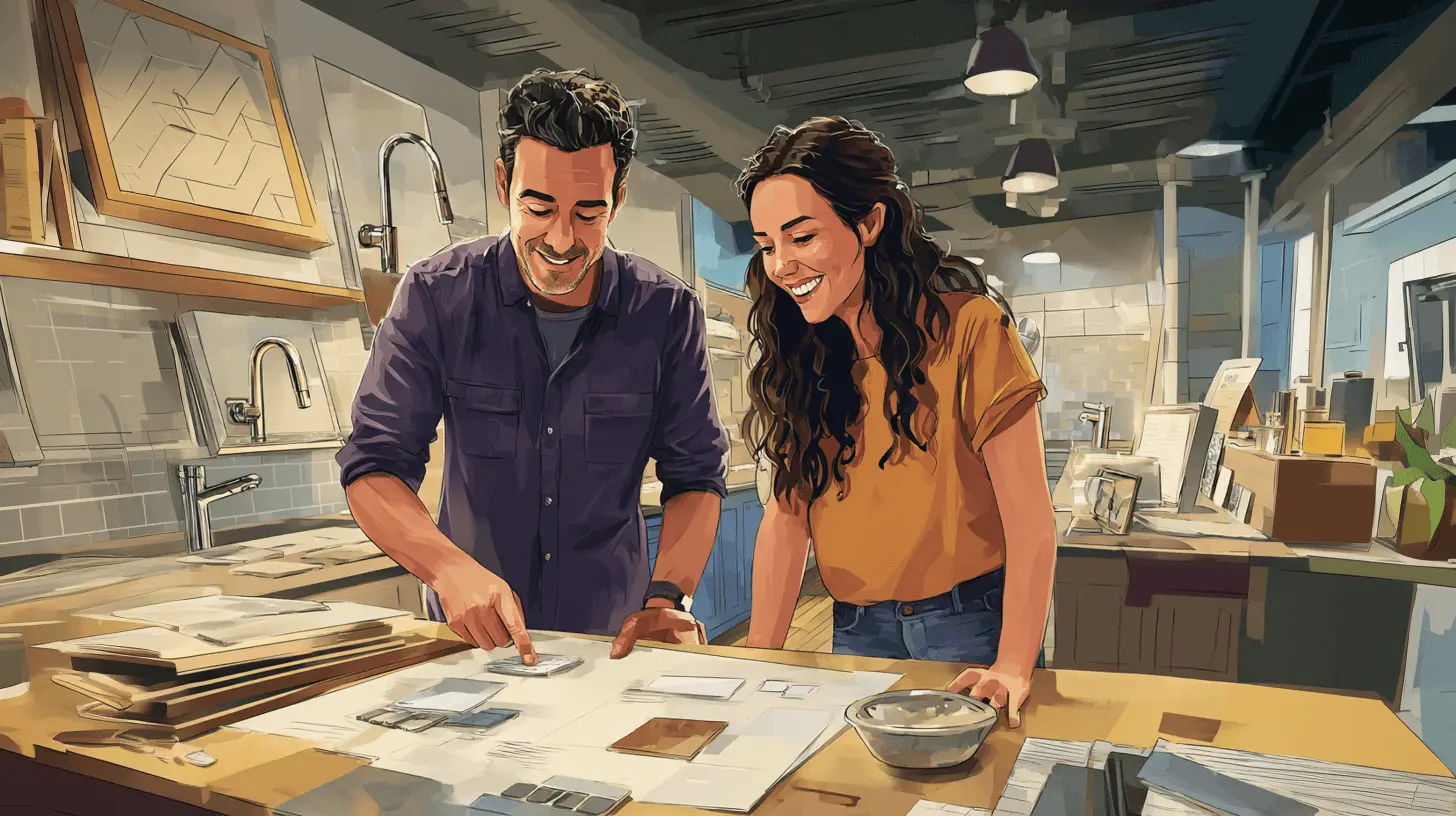Before You Renovate in Dubai: 5 Things Every Homeowner Should Know

Renovating a home in Dubai can add real value and transform how you live. But from our experience connecting homeowners with vetted experts, we've seen many homeowners overlook the critical preparation phase that comes first.
It doesn't have to be hard though—the steps are simple to follow, and just being aware of them is the key to staying ahead.
Step 1: Approvals, approvals, approvals

Before anything else, you'll need to secure multiple approvals, which often take up to a month to process altogether, so it's best to handle them early.
Firstly, you'll need written consent from your neighbours. This is especially important if your renovation involves noisy work, like demolition. Some developers even require a No Objection Certificate (NOC) from immediate neighbours to process the application for your approval.
Once you've received consent from your neighbours, it's critical to obtain an NOC from your community developer, such as (Emaar/ or Nakheel/Dubai Properties etc). This gives you permission to carry out the renovation work, by confirming that your renovation won't violate community guidelines or impact surrounding properties.
Finally, you'll need approval from your local authority—most likely from the Dubai Development Authority (DDA). This ensures your renovation complies with broader building regulations, as well as health and safety codes.
Without these approvals, your renovation could be stopped. Something to note as well is that approvals typically have a validity period of six months, so don't plan to start the renovation months later.
Step 2: Know if you need a consultant

Consultants are not required for minor renovations that don't affect the structure of the property, like replacing flooring or wallpapering. But many renovations in Dubai require a licensed consultant, including those involving layout changes, like wall removals or balcony extensions.
If you need a consultant, it's important to know that they're responsible for preparing technical drawings that will form the foundation of your approval applications. This includes any drawings showing proposed changes to layout or structure, like wall removals.
Beyond creating the drawings, your consultant will submit them to the relevant community developer and relevant government body. They will also manage any general communication that follows.
There's no alternative to this either. Renovation contractors or interior designers aren't licensed to take on this role. Consultants are legally required to instead, and act as the official sign-off for what's being proposed.
Step 3: Finalise materials

It's tempting to begin the renovation and decide on finishes as you go, but in Dubai, this approach almost always leads to problems.
Suppliers may have limited stock of the materials you need, like tiles or countertops, especially if you want custom or premium finishes. In this case, suppliers often need to order the materials from overseas, which could take up to six weeks!
So before the renovation starts, make sure you know when all materials will arrive, including:
- Tiles and flooring.
- Kitchen countertops and cabinetry.
- Doors and windows.
- Sanitary-ware and plumbing fixtures.
- Fittings and appliances.
- AC or MEP (mechanical, electrical and plumbing) components.
For this part, don't forget to ask for trade discounts if you're working with an interior designer. Designers often have access to preferred pricing or direct supplier relationships that can save you significant amounts.
More importantly though, by finalising all selections early, you can plan the renovation schedule properly, and avoid delays partway through caused by unavailable materials or last-minute changes.
Step 4: Relocate (and store everything)

One of the most commonly overlooked aspects of renovating in Dubai is the need to temporarily relocate and place household items into storage.
Most homes in Dubai are made from concrete, which leads to high levels of dust formation, especially if large-scale renovation is taking place, like wall removal. This is without even mentioning the noise levels of renovating, and the general disruption of having a team of renovators in your home, while you and your family are there.
Even if only a section of your home is being renovated, you'll likely need to arrange short-term accommodation from a few weeks up to a couple of months, and relocate all furniture and household items into a storage facility for the project duration. Asking friends or family if they can store any of these items is a useful alternative to help you save costs.
The longer you wait, the more expensive short-term rentals and item storage will be, so it's important to plan for these steps as far in advance as possible.
Step 5: Track the budget yourself

Even if you're working with a reputable interior designer, consultant, and contractor, you should track everything you spend throughout the project yourself.
Renovations typically involve many costs, from supplier quotes on materials to consultant fees. Without a personal tracker, it's easy for costs to spiral, and homeowners may not realise how far they've gone off budget.
To ensure you stay on track, make sure you keep a note of all costs as you go along using a simple spreadsheet, document or diary. Key costs to monitor include:
- Quotes and signed contracts.
- Deposits and final payments.
- Material purchases and delivery timelines.
- Ongoing costs like relocation or item storage.
- Unplanned variations or additions not originally planned for.
It's particularly important to track anything unplanned for, to avoid losing control of your budget.
Don't assume every vendor or contractor will keep your financial needs in mind. You'll be surprised by how much you can save simply by reviewing costs line by line, comparing material supplier pricing, or eliminating unnecessary extras.
A summary: preparing for renovation
Planning a renovation in Dubai requires more than aesthetic inspiration. It's about approvals, logistics, budgeting, and getting ahead of potential delays before they happen. Even a modest renovation, if unplanned for, can turn into a frustrating and costly process.
To ensure you stay on track, it's essential to do the following:
- Get your approvals done. Without them, your renovation may be stalled, or never even take place.
- Understand the role of a consultant. A consultant is a legal must for renovations involving structural changes in Dubai.
- Purchase all materials in advance. Leave at least six weeks before the renovation starts.
- Temporarily relocate and place items in storage. With large-scale renovations, you and your items will most likely need to leave the home.
- Budget wisely. Avoid any surprises by keeping track of your budget.
Once you've got all preparations in order, you'll need an expert you can rely on to turn your dream home into a reality. Let us help you find a trusted home expert in seconds at Check Trusty.

